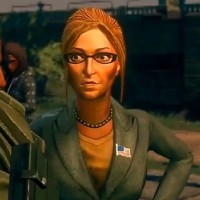

The Deep Range (1957) presents the ocean not only as a source of food and other material resources but also as an environment providing generative challenges to ensure social and moral development. Clarke, more well-known for his space stories, created imagined futures in which the ocean proved key to humanity’s future. Some also recognized the ocean’s depths as resembling space in its promise for human success, survival, or redemption. Homo aquaticus, evolution, technology, underwater, futurismįuturists have long embraced the idea that human survival will depend on the ability to survive in outer space. The origin, shape, and fate of the Homo aquaticus idea offer insights into our human relationship with the rapidly changing ocean environment, while its persistence may reflect hope for prospective solutions to encroaching, human-caused disasters. In the face of environmental change and awareness, subsequent versions reflect yearnings merely for survival of the human species. Homo aquaticus and its allied visions, while animated by older traditions, flourished in the historical context of intensely optimistic post–World War II hopes for human exploitation of the ocean, especially its depths. This article historicizes the casual and common understanding that humans are connected to the sea by investigating the precursors to the Homo aquaticus idea, the attempts to realize this prediction through technology, and the legacies emerging from it. The story of Homo aquaticus reveals the extent to which humanity’s future has become tied to the ocean. In 1962 Jacques Cousteau announced Homo aquaticus, a vision involving both technological intervention and natural adaptation to intentionally evolve a species of human to live underwater.

Imagined futures of the ocean have been intertwined with reflections on human evolution and what it means to be human.

Here is the list of books that will guide my reading this summer.Futurists have recognized the ocean’s depths as resembling space in its promise as a setting for human success, survival, or redemption. I will not let these problems stop me from my quest. What I'm left with are the big books (12+), the books I can't find at the library or even Amazon, books I can't find in English, books that (honestly) don't really appeal to me. But the truth is that I've read almost all of the easy books-the picture books, the short chapter books, the books widely available here in the US. It sounds like an easy task, reading children's books.

I propose to try to read 20+ books from my list this summer. I am always able to easily read 3-7 books a week.Īs some of you know, I've been trying to read all 1001 Children's Books You Must Read Before You Grow Up. I used that (much-needed) time to catch up on my kid reading. When I was working, summer was my big reading time. Cathy at 746 Books is hosting her 20 Books of Summer Challenge.


 0 kommentar(er)
0 kommentar(er)
